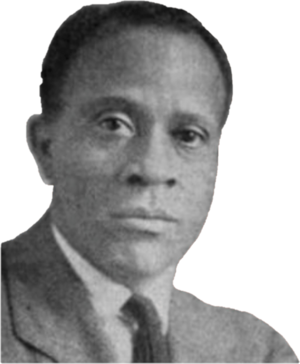Charles Sumner Duke facts for kids
Quick facts for kids
Charles Sumner Duke
|
|
|---|---|

A photograph of Mr. Duke.
|
|
| Born | July 21, 1879 |
| Died | June 15, 1952 |
| Parent(s) |
|
Charles Sumner Duke (born July 21, 1879 – died June 15, 1952) was a talented architect and engineer. He also worked as a public official. Mr. Duke was a strong supporter of equal chances for African Americans. He helped start an important group called the National Technical Association (NTA) in 1925. His father, Jesse Duke, was a newspaper writer and a leader for civil rights.
Early Life and Education
Charles Sumner Duke was born on July 21, 1879, in Selma, Alabama. His father, Jesse Duke, ran a newspaper. Jesse Duke wrote powerful articles that spoke out against unfair treatment. Because of his father's brave writings, the Duke family moved to Pine Bluff, Arkansas, for their safety.
Charles Duke was a very bright student. He went to college at two well-known universities. He studied at Harvard University. He also graduated from the University of Wisconsin. After finishing his education, he moved to Chicago in 1908.
Building a Better Future
Charles Sumner Duke believed in helping others succeed. He saw that African Americans needed more chances in technical jobs. To help with this, he co-founded the National Technical Association (NTA) in 1925. This group aimed to support and connect African American engineers, architects, and scientists.
Mr. Duke was chosen to be the very first president of the NTA. He worked hard to make sure the organization grew. The NTA helped many people find jobs and build careers. It also encouraged young people to study science and engineering.
A Lasting Legacy
Charles Sumner Duke passed away on June 15, 1952. His work and dedication left a lasting impact. The National Technical Association continues to honor him today. They have a special event called the Charles S. Duke Distinguished Lecture Series. This series brings important speakers to share ideas. It helps keep his vision of opportunity alive for future generations.
 | James Van Der Zee |
 | Alma Thomas |
 | Ellis Wilson |
 | Margaret Taylor-Burroughs |

